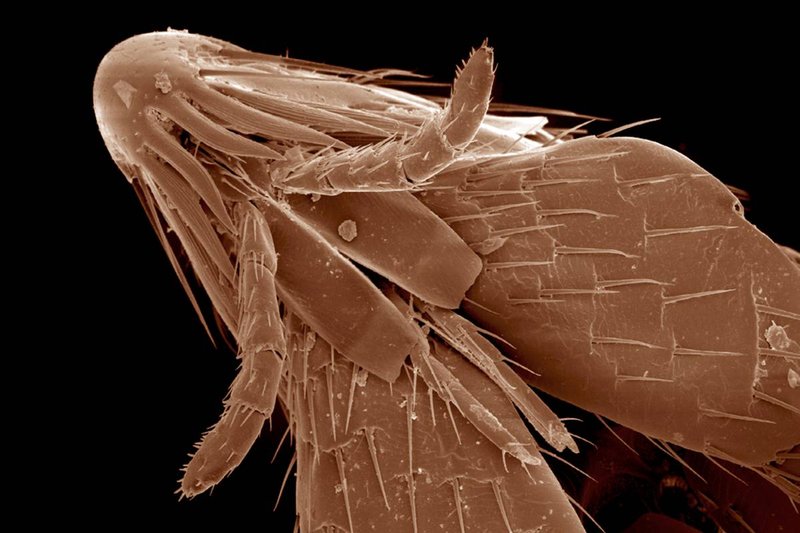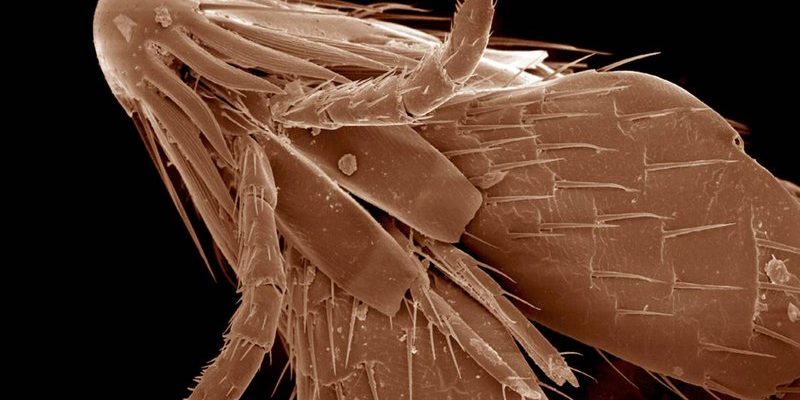
Picture this: whether you have a furry friend or not, fleas can invade your home and create quite a ruckus. But do they pose a serious health risk to us? While fleas mainly like to feast on the blood of pets, they can also bite humans when they’re hungry. Their bites can be annoying and itchy, but the real worry is what else they might bring along. So, let’s explore the world of fleas and discover if they truly are a threat to human health.
What Do Fleas Look Like?
Fleas are small, wingless insects, usually measuring about 1/16 to 1/8 of an inch long. They have a flat body, which helps them wiggle through their hosts’ fur or hair with ease. The most common type is the cat flea (*Ctenocephalides felis*), which is not just picky about its buffet. While their name suggests they prefer cats, they’ll happily munch on dogs and even humans.
Fleas are often a dark reddish-brown color, making them a bit tricky to spot. They can jump about 7 inches vertically and 13 inches horizontally—there’s a reason we find them so hard to catch! If you suspect your home might be hosting these jumpy little party crashers, you might see some black specks in your pet’s fur. Those are flea droppings, and they can look like tiny pieces of pepper.
A good way to identify fleas is to use a flea comb on your pet. If you’re finding tiny insects or black specks on the comb, it might be time to get serious about flea control.
How Do Fleas Affect Humans?
So, what happens if a flea decides to bite you? Honestly, while their bites can be quite uncomfortable, they don’t typically cause serious harm to most people. When a flea bites, it injects saliva that can lead to itchiness and redness. Some folks might even experience an allergic reaction, causing more intense swelling or itching.
If you’ve ever had a mosquito bite, you can picture the annoyance of a flea bite. They often appear as small, red welts that can become incredibly itchy. This itchiness leads many to scratch, which can result in broken skin and potential infections. So, while fleas aren’t deadly, there’s definitely a level of irritation and risk of secondary infections from scratching.
Here’s the thing: if you’ve noticed flea bites, it’s a good idea to take action quickly. The sooner you tackle the problem, the less likely you’ll have to deal with itching and discomfort.
Can Fleas Transmit Diseases to Humans?
While fleas are more of a nuisance than a direct threat, they *can* carry certain diseases. Notably, fleas are known carriers of bubonic plague and typhus. However, it’s essential to note that these cases are rare today, particularly in developed areas.
Bubonic plague is most infamous for being a part of the historical pandemic in the Middle Ages, but it still exists in some rural areas. Fleas can become infected by biting rodents and then transfer the disease to humans through bites. Typhus, on the other hand, is spread through contact with flea feces or a flea bite. Symptoms can include fever and rash, which can be serious if not treated effectively.
The good news is that in most households, the risk of catching these diseases from fleas is very low. Practicing good hygiene, keeping your environment clean, and managing your pets’ flea control can significantly lessen any risks.
How Do You Get Rid of Fleas?
If you find yourself dealing with fleas, don’t panic! Getting rid of them is possible with some consistent effort. Here’s how to tackle the problem step-by-step:
- Treat Your Pets: Start with your furry friends! Use vet-recommended flea treatments like topical spot-on treatments, oral medications, or flea collars. Regular grooming with a flea comb can help remove fleas and their eggs.
- Clean Your Home: Vacuum your carpets, rugs, and upholstery frequently to remove fleas and eggs. Make sure to empty the vacuum immediately after to avoid re-infestation.
- Wash Bedding: Wash your pet’s bedding and any blankets or fabrics they frequently touch in hot water. This helps kill fleas and their eggs.
- Use Flea Products: Consider using flea sprays or powders for carpets and furniture that are safe for pets and humans. Always read the labels!
- Consider Professional Help: If your flea problem is severe, don’t hesitate to call in pest control professionals who can provide stronger treatments.
Consistency is key! Fleas can reproduce rapidly, so staying vigilant helps ensure you won’t be facing a larger infestation down the line.
Preventing Future Flea Infestations
Prevention is always better than dealing with an infestation! Here are some effective ways to keep your home flea-free:
- Regular Pet Treatments: Make sure your pets are on regular flea prevention. Ask your vet for recommendations based on your pet’s needs.
- Maintain Cleanliness: Regularly vacuum and clean your home. This not only removes fleas but also helps prevent eggs from hatching.
- Outdoor Care: If you have a yard, treat it for fleas. Keep grass trimmed and consider using outdoor flea treatments if you notice problems.
- Monitor for Signs: Keep an eye out for any signs of fleas. Early detection means quick action!
By being proactive, you can significantly reduce the chances of fleas becoming a part of your home.
To wrap it up, fleas can be annoying little pests that might cause some discomfort with their bites, but their threat to humans is relatively low in daily life. Keeping your pets protected, maintaining a clean home, and promptly dealing with any signs of fleas can keep infestations at bay.
While they can carry diseases, taking simple preventive measures can help you avoid the hassle. So, if you’re sharing your space with a furry friend or if you notice unexpected bites, now you know how to tackle the situation. After all, a flea-free home is a happy home!

